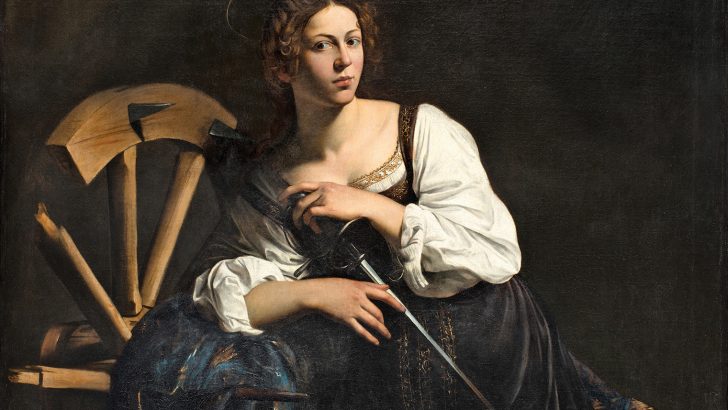In the times we are living through, it’s hard to know how to practice Lenten abstinence, since most of us have already forsworn the daily pleasures or self-indulgences which were once the subjects of Lenten penitence.
Weight
Scolded about the perils of increasing our weight, we’re diligently fasting two, three or four days a week. So, no chocolates, sweets or cake. We’ve quit cigarettes years ago, driven by both health warnings – and stigma. For imbibers, the pubs have shut their doors – so no socialising alcohol.
In times gone by, Irish dance-halls were shut during Lent. All places of music and dance are now closed anyway. The cinema and the theatre are gone, too.
We could turn down the central heating and ‘offer it up’: although the eye-watering sums appearing on energy bills have some of us doing that that anyway.
Mass
During Lent, some attended daily Mass: not possible, in a real sense, though accessible online. There are no devotions in real life either.
I don’t see that there is anything I can do, now, for Lenten practice – that isn’t part of my lockdown life anyway.
So, I’ve devised a positive, and I hope, uplifting Lenten routine: I will regularly contemplate the lives of the saints, as portrayed in paintings.
I have before me a book called Saints in Art, which offers over 370 pages of beautifully reproduced paintings of saints’ lives, and their stories.
Contemplation
The first contemplation will be Caravaggio’s St Catherine of Alexandria, painted in 1599 – rich in the sombre colours associated with the artist, and depicting her symbols. Catherine was persecuted by the Roman authorities for her Christian faith: she defended Jesus Christ against 50 of the emperor’s philosophers and orators. She was condemned to be broken on a wheel – thus her symbol – but was eventually executed. In these days of persecuted Christians, Catherine is a fitting Lenten saint.
***
It gives me no pleasure to report that the Church of England has come under some fierce criticisms in recent times. The former Archbishop of Canterbury, George Carey, has bitterly accused his church for failing to stand by clerics who are accused of abuse or being associated with an abuser on the principle of ‘innocent until proved guilty’ – but of assuming guilt at the slightest suggestion, and being slow to reinstate clergy even when someone’s name cleared.
The C of E is reckoned to have lost 200,000 worshippers over the past five years – and 20% of Anglicans will not return to church practice after lockdown finishes.
In last weekend’s London edition of The Sunday Times, the popular columnist Rod Liddle lacerated the present Cantuar, Justin Welby. “For almost the entire population our established church has become a complete irrelevance,” he wrote, “a pitiable institution forever cringing before the most fashionable progressive causes and presided over by a man of such sodden vapidity that I feel an urge to wring him out and hang him up to dry every time I see him.” He accused Dr Welby of being obsessed with becoming ever “more liberal, more diverse, more right-on” even as the pews empty.
This is a hard-hitting critique, and perhaps over the top. But I do think it is dangerous for the head of a church to be perceived as ‘cringing’ before ‘fashionable progressive causes’. Leadership may possess the virtue of humility, and acknowledge past errors, but it must show fortitude, vision and confidence in the message it is there to impart.
Zooming into the past
One of the few benefits of lockdown has been the increase in meetings, conferences, conversations and cultural soirées via Zoom. Last week, on February 3, the Central Catholic Library in Dublin organised a fascinating talk about the Loreto sisters caught up in Spain during the Spanish Civil War – given by the UCD historian Dr Benjamin Hazard (and arranged by Edel Purcell of the CCL.)
The plight of nuns during the 1936-1939 civil war in Spain is a subject which has been overlooked by women historians. Nuns suffered badly during this conflict – over 3,400 clergy and religious were murdered – and many nuns were also raped. But because the Church was seen as being aligned with General Franco, their stories have seldom been told.
Dr Hazard, a young historian, has translated many of the letters written by Loreto sisters, in Spanish, during this period – the order having given him access to their archives – and he gave an insightful talk about the nuns’ everyday lives. The British consulate, headed by a Highland Scots Catholic, gave shelter to the nuns and eventually the Loreto sisters escaped the conflict. Other nuns were not so fortunate.
Ben Hazard’s talk has been put up on-line by the English Catholic History Association and can be accessed here.
In our lonely lockdown lives, Zoom has certainly given us a window on rewarding conversations.


 Mary Kenny
Mary Kenny Saint Catherine of
Alexandria (c. 1598)
by the Italian Baroque
master Caravaggio.
Saint Catherine of
Alexandria (c. 1598)
by the Italian Baroque
master Caravaggio. 